Flexible solutions secure stable food supply
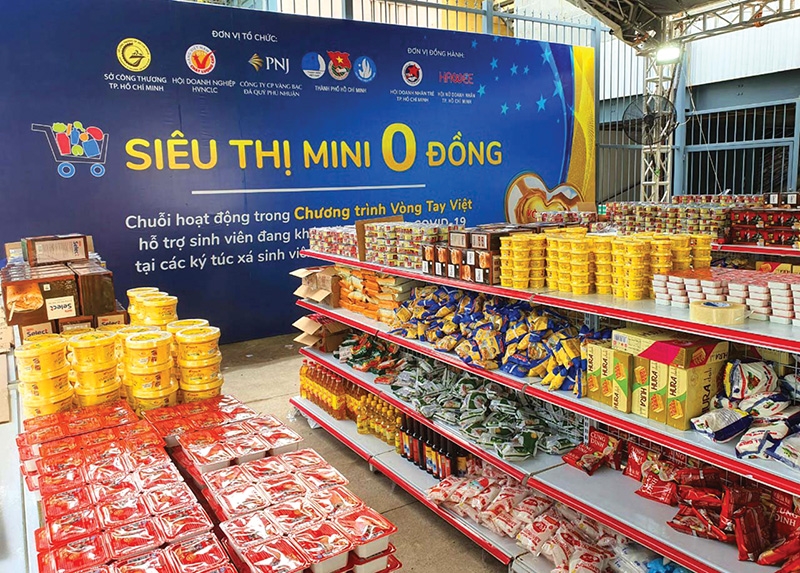 |
| Zero-VND minimarts are familiar to the poor in many cities |
Over the past month, the city has temporarily closed wholesale markets and traditional markets, as well as some supermarkets and convenience stores. Thus, people have flocked to remaining supermarkets and mini grocery stores to purchase food and necessities, causing an overload for modern retail channels.
There have been long queues of customers waiting at supermarkets and convenience stores to buy food and essential products, with much of the food being sold at higher prices. To address the issue, Ho Chi Minh City Department of Industry and Trade (DoIT) has called for businesses in different fields to develop a flexible supply chain of food and necessities to serve the demand of local people.
Accordingly, a number of businesses transformed their outlets into price-stabilisation points including many Vinmart grocery stores, 150 Con Cung mom-and-baby stores, 67 Guardian beauty and healthcare stores, and 300 Pharmacity drug stores, as well as 36 Nhat Tin logistics outlets. For the first time, some of these stores will sell fruits, vegetables, and necessities for consumers.
Meanwhile, postal and logistics companies are also helping to transport and distribute goods to consumers such as Viettel Post, VNPost, GiaoHangNhanh, GiaoHangTietKiem, and ABA Cooltrans.
According to Nguyen Thi Minh Giang, coordinator of the programme, it took four days to establish a flexible supply chain including transporting goods from suppliers to warehouses, sorting and classifying goods, and distributing them to points of sale. The flexible supply chain is completely new so it presents some challenges like transportation and warehousing, and most businesses are selling fruits and vegetables for the first time so they have to learn how to preserve goods.
In addition, the DoIT also partnered with e-commerce platforms like Tiki, Shopee, and Lazada to increase the online sale of fruits and vegetables, aiming to diversify supply channels for consumers. As of present, the DoIT has established over 3,000 price-stabilisation points in supermarkets and convenience stores, and 388 mobile sales points in the city.
Furthermore, the department is taking steps to reopen wet markets to ease the overload for modern retail chains. The department is mulling granting grocery cards and numbered tickets to limit the number of consumers in wet markets.
At the same time, a number of mobile selling outlets have been introduced to serve people living in quarantined and locked-down areas. Japanese retailer AEON is running four mobile vending carts in densely populated areas near large traditional markets that are temporarily closed. The price of fruits and vegetables sold at AEON’s mobile points of sale is equal to the price in its supermarket chains.
For poor and disadvantaged people, various zero-VND minimarts have been opened in the city over the past month to help them overcome challenging times. These facilities provide dry food, fresh agricultural products, spices, and fruits and vegetables to people stuck in the pandemic epicentre. People can also get a voucher to go shopping at special supermarkets without making any payment.
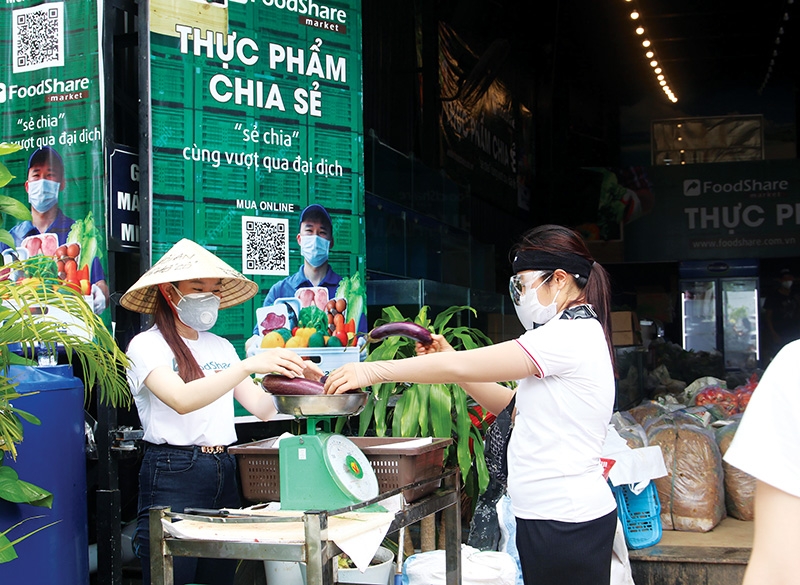 |
| One of the many foodsharing outlets and mobile sales points in Ho Chi Minh City |
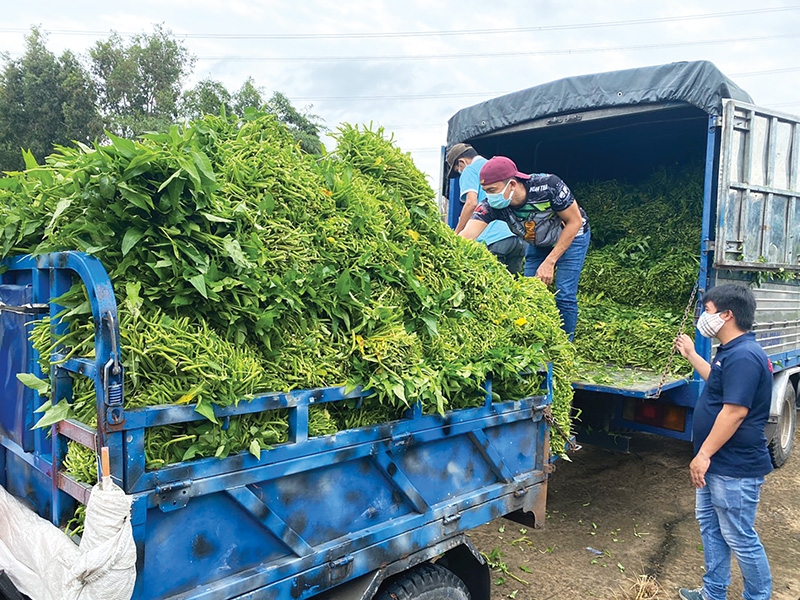 |
| Green vegetables are delivered from Gia Lai province to Ho Chi Minh City |
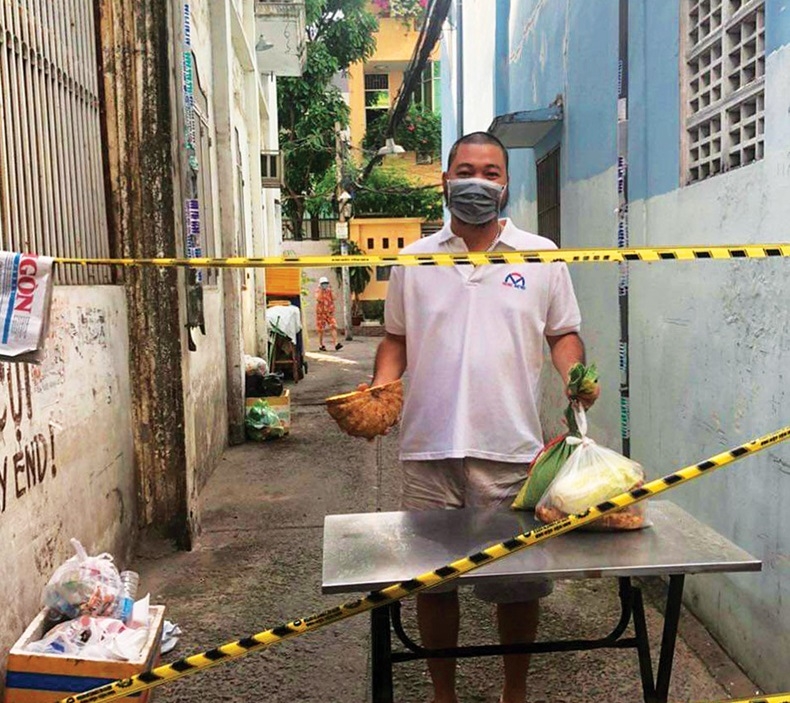 |
| Residents receive donated food from other provinces |
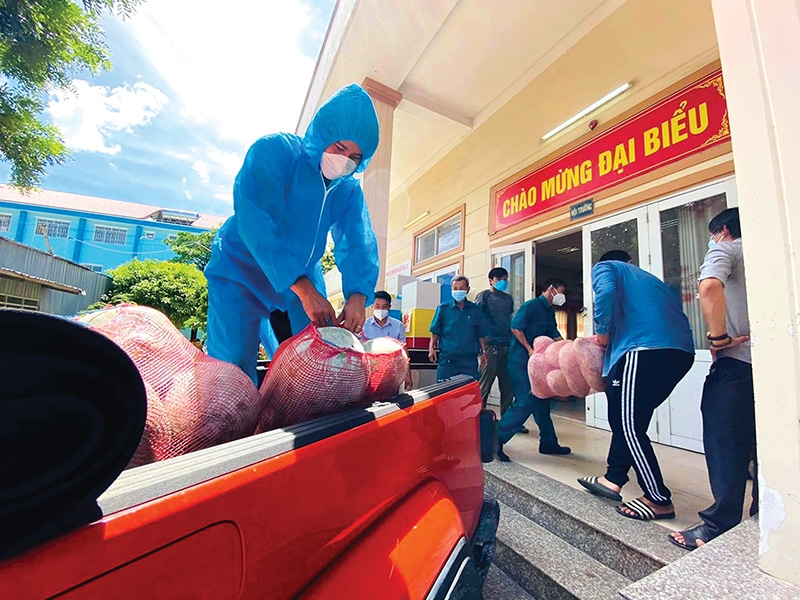 |
| Food supply for the quarantine centres in Ho Chi Minh City |
 |
| Prepared fruits and vegetables for quarantine areas |
What the stars mean:
★ Poor ★ ★ Promising ★★★ Good ★★★★ Very good ★★★★★ Exceptional
 Tag:
Tag:
Themes: Together We Win
- Greater Mekong Subregion executives to discuss sustainable tourism
- TCPVN donates 1,200 medicine bags to COVID-19 patients in southwest
- AB InBev supports orphans with scholarships amid COVID-19
- Evaluating the reach of support in turbulent times
- Gamuda Land grants “Back to School” scholarships to support disadvantaged students
Related Contents
Latest News
More News
- Congratulations from VFF Central Committee's int’l partners to 14th National Party Congress (January 25, 2026 | 09:46)
- List of newly-elected members of 14th Political Bureau announced (January 23, 2026 | 16:27)
- 14th Party Central Committee unanimously elects To Lam as General Secretary (January 23, 2026 | 16:22)
- List of members of 14th Party Central Committee announced (January 23, 2026 | 09:12)
- Highlights of fourth working day of 14th National Party Congress (January 23, 2026 | 09:06)
- Press provides timely, accurate coverage of 14th National Party Congress (January 22, 2026 | 09:49)
- Press release on second working day of 14th National Party Congress (January 22, 2026 | 09:19)
- Minister sets out key directions to promote intrinsic strength of Vietnamese culture (January 22, 2026 | 09:16)
- 14th National Party Congress: Renewed momentum for OVs to contribute to homeland (January 21, 2026 | 09:49)
- Party Congress building momentum for a new era of national growth (January 20, 2026 | 15:00)






















 Mobile Version
Mobile Version